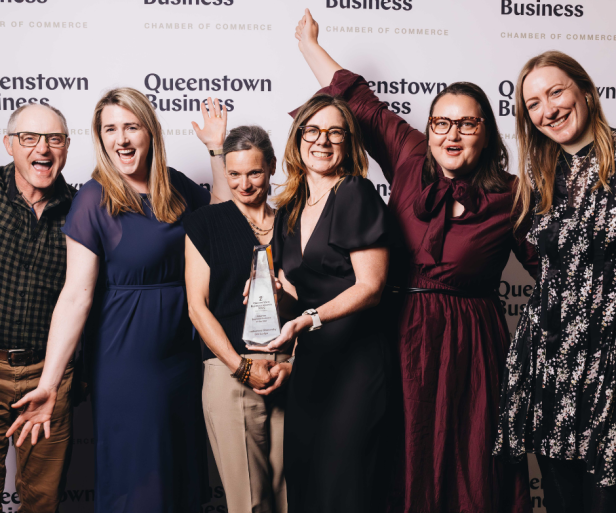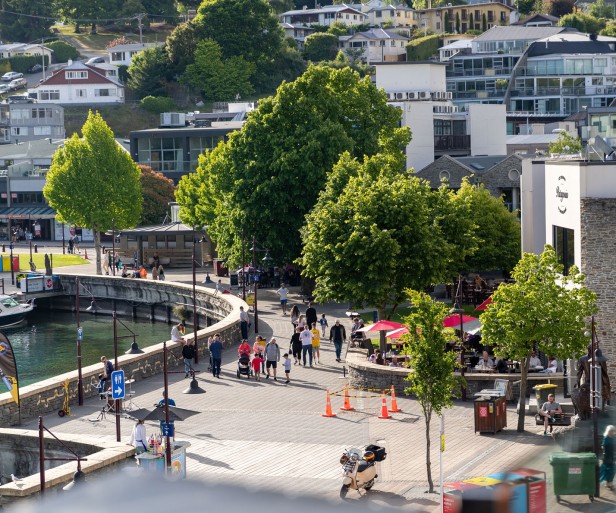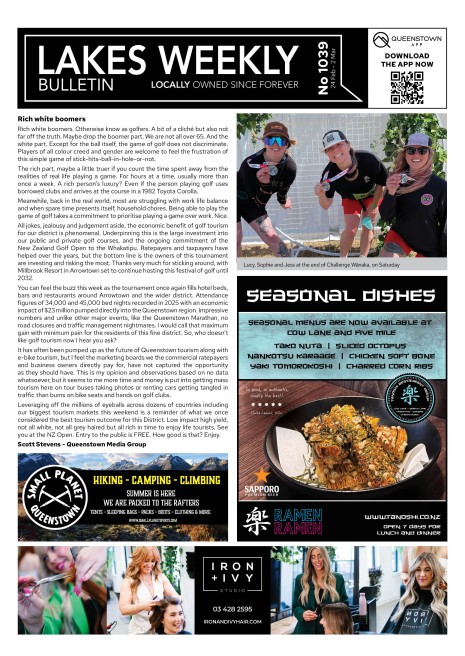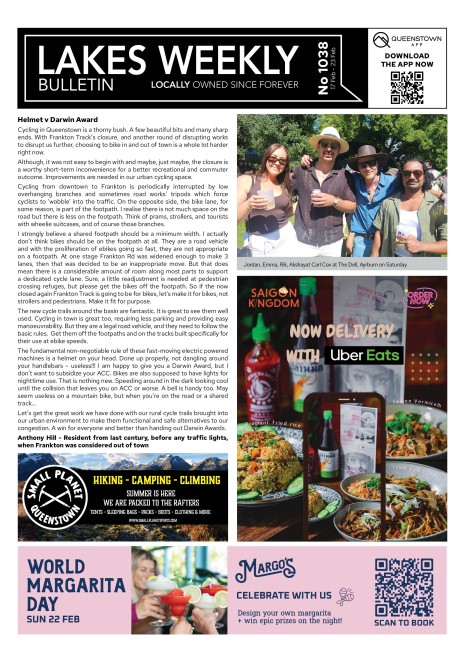Brace yourselves – summer will be big
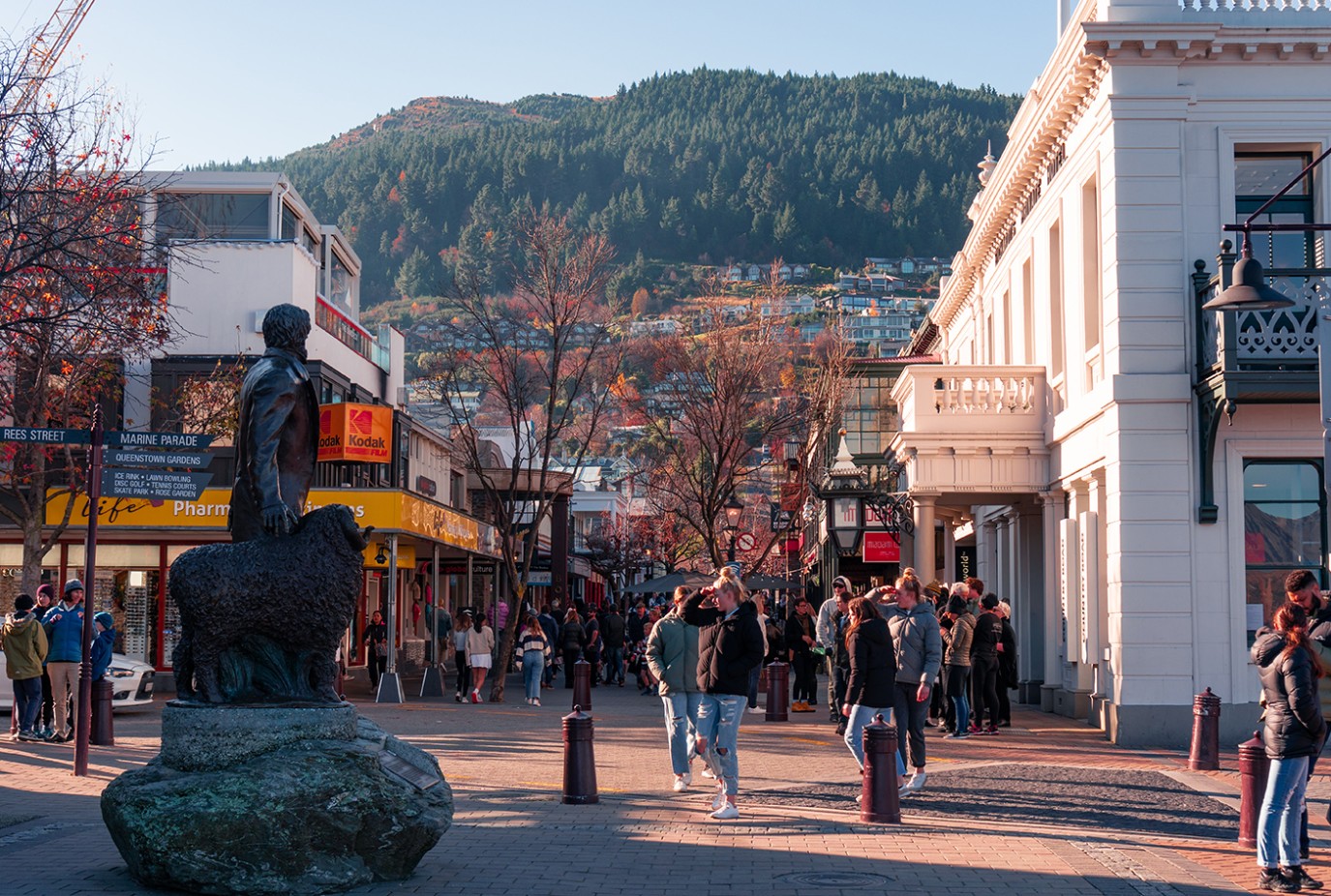
Boom times are back and while it should be a celebration for local businesses it looks like chronic labour shortages will ensure the busy summer predicted ahead may look more like a minefield for employers.
However, it’s not all bad with some temporary help on the way for the peak season, in the form of working holiday visa holders from overseas.
Queenstown has just come off the back off a record winter, even surpassing that of a very buoyant 2019, with visitor spending from June until August reaching $252 million, according to Destination Queenstown. That’s compared with $212 million for the same period in 2019. Most of that growth has been from the domestic market.
Arrowtown-based economist Benje Patterson isn’t predicting the worldwide labour shortage problem to go away any time soon. Queenstown’s always struggled with staff and accommodation shortages, even prior to Covid, he says.
“Essentially we’re fighting in a war for workers globally, he says. “In many developed countries there’s an aging demographic set to retire so places are desperately seeking to fill these roles.” In New Zealand, one in six people are over 65 and in the next 20 to 30 years, according to Statistics NZ, that will be one in four, says Benje.
“Businesses need to realise this is not a cyclical thing. It’s a long-term challenge, how we access workers when competing globally,” he says.
Labour saving technology and automation may take some significant upfront investment but in the long run it will pay off, says Benje.
“In a restaurant or hotel there’s a lot of manual work requiring people power, but technology, like automated booking systems and online systems to order drinks, can maybe help do away with two of your 10 staff,” he says.
Collaboration will also be key moving forward. “Instead of tourism operators competing for visitors with their own individually branded courtesy vans they could out-source to one company that does it for all.” It’s not going to work for all types of businesses, but some can reduce costs dramatically by adopting new practices and technology systems, says Benje.
The Australian ski market was key to the record winter Queenstown experienced. “As soon as the borders opened it went off. Australians had been stuck in a perpetual mirage where they couldn’t see, feel, or touch New Zealand and there was a lot of pent up demand,” says Benje. “Then the big dumps of snow set off an amazing and consistent season.” Prior to that Queenstown had been looking at an estimated $3 million loss to its economy during the July school holidays due to labour shortages, he says, but thankfully it was a boomer. “That came at a cost though.” Restaurants had to cut tables, hotels close rooms, there were long queues, and you couldn’t get a bus up the skifield sometimes. “But we managed very well.” His main concern is how that will have all affected Queenstown’s long-term tourism reputation.
A government survey of working holiday visa applicants shows Otago’s high on the list for summer and that they’re keen to work in tourism and hospitality. “I’m cautiously optimistic we will get a few passing through which is fantastic. They will be highly valued and take some of the pressure off.” However, you can’t train someone to wait five-star restaurant tables if they’re only here for a few weeks, he says.
Queenstown Chamber of Commerce head of business growth Sharon Fifield says the government has approved 30,000 to 40,000 working holiday visas. While Queenstown’s been identified as a hotspot with Immigration NZ, some employers who’ve received potential job applications say workers can’t get accommodation, she says.
The chamber and council have been advocating at government level for changes to local residential zonings to allow wider approval of accommodation supplements, and simplification of secondary tax requirements. “With such a tight labour market, it would be great if employers could share staff and coordinate on those days they’re having to close due to staff shortages. However, current secondary tax rules are a disincentive to workers in picking up extra work,” says Sharon.
Queenstown’s lost a lot of labour these last few years. “Each quarter we churn about 20 to 25 percent of our workforce, meaning around 4000 jobs need to be filled with new staff as others have left or moved roles. That’s a lot of work for businesses,” she says. “It’s definitely an employees’ market. Workers are moving jobs for even 50 cents an hour or more.”
Employers need to reduce that churn and retain staff, not just with pay incentives, but well-being initiatives, training, development, and team culture, says Sharon.
Like Benje, she says small businesses need to work together to reduce costs. “There’s a lot of duplication.”
Queenstown’s heading for a boomer summer and everybody recognises it’s going to be tough, but local high school students are already stepping up and they’re in high demand. “Without any considerable influx of new workers, we need to tap into our under-utilised older workforce, and those with disabilities. Everyone’s pitching in,” says Sharon. It’s hoped people with a spare room may also rent those out to workers. She urges business owners to look after themselves. “We’re doing all we can to help, but be patient,” she says.
“Brace yourselves. Summer will be tight.”


